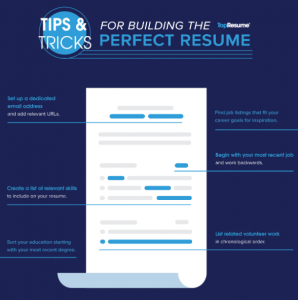Certain people are simply delightful being around. They are a joy to be around at any gathering or at work. anxieties go away when you learn that an initiative that involves them.
This is typically due to their positive traits in personality.
These traits can lead some people to develop into inspiring leader, empathetic parents, and considerate friends. The trick to utilizing these qualities to benefit others is to use their strengths and strengthen weaknesses.
It’s not too late to enhance your character, too. Researchers have observed that people’s personalities change as they age, significant personal event or constant discipline.
Being a better version of yourself is a process that requires effort dealing with less likable personal traits could be an intimidating first step. Learn about your strengths, then leverage your strengths and be at tackling the weaknesses.
What is a characteristic of a person?
Personality traits define our thoughts and behavior. Examples are being open-minded and hot-tempered, as well as being easygoing or confident.
Around 30-60% your personality characteristics are genetic and our genes frequently determine how we behave. But the traits that define us can also be influenced by our social environment. It is possible to be unorganized, but being in a tidy home can make this habit a part of you, for instance.
This flexibility is fantastic -You have the ability to change your behavior and your behavior. isn’t completely out of your reach.
Recognizing the positive traits of an individual
It’s not always easy to recognize our weaknesses rather than our strengths however, knowing your strengths and strengths can provide you with an assurance you need to build on your weaknesses.
The best place to begin is to determine what your The Big Five personality characteristics score, with each one being placed in the top ten percentile of 100.
A higher score indicates that you have higher levels of this characteristic and vice versa.
- Agreeability: It refers to a person’s characteristic of being trustworthy as well as sympathetic and helpful.
- Consciousness: Those who take their duties seriously and are extremely organized and trustworthy have a high level of this characteristic.
- Extroversion: People who naturally seek out and are motivated by social interactions are called extroverts.
- Neuroticism: People who are inclined towards anxiousness and are extremely detailed often to the point of being naive have higher scores for this characteristic. The term “openness” refers to the degree of receptivity someone has to new perspectives and experiences. They are usually intelligently curious and creative.
Each personality type is a part of the five categories. If you’re 75% happy as an example, this could also mean you’re a optimistic person, since optimism is part of agreeableness.
After you’ve completed an assessment of your Big Five assessment, drill into the specific strengths you have in yourself by making the list of positive traits for yourself. This list can help you zero into smaller, more easily manageable characteristics to improve. You might want to do this with a trusted family member or friend to get their viewpoint.
Here are some personality traits ideas to help you brainstorm your next brainstorming session:
Positive interpersonal traits
These skills enable you to get along with other people and are essential for your social wellbeing..
- A great leader has the ability to take responsibility and directing others to finish their tasks or accomplish goals that are shared
- Compassionate care for others, even when their suffering is incredibly dissociated from your own
- Empathic: able to place yourself in the position of someone else to appreciate their perspectives as well as their emotions
- Be generous: respond to the needs of others generously donating the time, effort and resources
- The spontaneous: having a passion for being present and acting upon impulse to capitalize on opportunities as they come up
- Friendly: a natural cheerleader, who provides support and encouragement to assist others in reaching their objectives
Honest being proud of achievements but without becoming arrogant or arrogant
- Believing: expressing confidence in the inherent quality of others. Integrity, strength, and strength of other people
- Cooperative: showing an ability to follow directions and collaborate with other people
- Passionate: showing intense passion and emotion for the subject, activity or a person
- Funny: identifying and sharing the absurdity of everyday life to entertain yourself and others
Positive intellectual traits
Being able to practice and develop intellectual skills assists us in engaging with and comprehend the world. We can better evaluate information and are able to think critically about situations in order to make better choices.
- Excited: showing a determination to understand as much as you can about a topic.
- Pay attention: noting particulars
- Intelligent: showing the ability to apply knowledge and reasoning to make decisions or create solutions to complex issues
- Analytical: ability to reason rationally, enabling you to draw the right conclusions and plot the possible outcomes
- Innovative: The ability to analyze the current product, belief or procedure to identify and implement improvements
- Decent: rapidly analysing a situation to assess all possible outcomes before making a decision with no hesitation
Creative is the ability to create something completely fresh into existence
- Work-hardy: determined to take on the obligations
- Objective Ability: to judge an argument in a fair way by taking it in different perspectives without prejudice or preconceived notions
- “Proactive”: planning ahead to anticipate problems in the future and implementing actions to prevent or fix the issue
Positive emotional traits
Personality traits that affect your emotions assist you in understanding and deal with emotions that you and others experience. They’re essential for maintaining a positive attitude as well as overall health.
- Calm: The desire to shift a situation or person from a state of tension to peace and tranquility
- A person who loves sharing spontaneous fantasies and creative actions with other people
- Idealistic: the quality that allows someone to set noble, sometimes unattainable goals to make the idealized world.
- A person with emotional stability, who assists others to keep their focus and maintain balance
- A person who is easygoing, who is relaxed and calmoften described as the exact opposite of a Type A personality.
Type A personality:
- Positive: someone who is positive about the future and anticipates the most favorable outcome
- Willing: Having the determination to achieve goals regardless of the cost or difficulties
- Nurturing: The capacity to support and encourage the efforts of others as they pursue their objectives
- Mature: A person who has gained wisdom and a firm knowledge of themselves and their values through the years
- Resilient: The ability overcome defeat or defeat and with new determination to meet or exceed the desired result
Five tips to develop positive traits in your personality
Your character isn’t set in stone. Through consistent effort as well as self-awareness it is possible to develop those traits you’d wish to embody.
Here are some suggestions to help make the process simpler:
1. Recognize your most difficult characteristics
You’ve gained confidence by focusing on your positive traits. Now is the time to confront your flaws. Every person has a mix of both good and bad qualities Don’t let your guilt hold you back. This process doesn’t involve criticizing yourself but instead focusing on areas where you can enhance yourself to become the most effective version of you.
Example: You’re irritable and become easily angry when others make mistakes.
2. Determine what qualities you’d like to improve
Once you’ve got your list, select one trait you’d like to concentrate on improving. Concentrate on the smaller, more easily adjusted characteristics that help to improve larger traits. If you’re trying to improve your level of comfort, you could begin by becoming more friendly by focusing on the smaller things, like.
Example: You’d like to get your temper back within a certain timeframe.
3. Include positive practices and behaviors
The most effective way to change a negative trait is to work on the opposite. If you’re a bit impatient, study people who are patient to discover how they react when things go by slowly, or the practices they implement into their daily lives.
Ask them “How do you remain so calm when traffic’s bad or a line’s taking forever?” Also, consider asking yourself “What would I do in this scenario if I were the most patient version of myself?”
Explore habits and practices that can improve these positive qualities. In terms of patience, you could engage in calming activities such as meditation, yoga mindfulness as well as journals to remind you to slow down and take in the present moment.
Example: If you are feeling angry and angry, take 10-minute inhalations. If that doesn’t work Find an anger management guidebook that covers different strategies for calming.
4. Find someone to mentor you
Changes in your personality are difficult work that usually requires external support. Find someone who embodies the traits you’d like to achieve for guidance. It could be someone like a mentor or a family member or a partner who that you can trust. They’ll help you learn and support you, while also holding them on your objectives.
Example If you’re having difficulty dealing with your temper, you should attend an anger management classes that pair you with a person who’s gone through the program to offer support.
5. Keep going
Personal development isn’t something that happens in a single day. It takes around the 66th day to establish the habit, so you must practice an mentality of growth to remind yourself that progress is a goal that will last for a long time.
Don’t let your mistakes deter you from achieving your goals. The the fact that you’re doing the work required to improve yourself is enough to be impressive.Let yourself accept your imperfections by accepting your mistakes and taking responsibility for the possibility of failure. It builds resilience to keep you on the path to your objectives.
Example What if, despite your efforts to become patient and patient, you find yourself losing your temper with your coworker Try not to blame yourself instead, but respond to the situation with a good attitude and continue developing the habit of patience.
You can accomplish this by saying sorry to your coworker, brainstorming ideas to increase your self-control, and making a commitment to keep your cool.
The effort you put in is well-worth it.
You’re doing a great job becoming more aware of yourself, and identifying the qualities you’d like to work on. It takes the courage and determination, but the personal development is worth it.
You’ll turn negative traits into positive qualities that enhance your mental well-being and increase your self-confidence. It requires time, effort and encouragement however, it’s achievable. It’s all you need to do is start.







